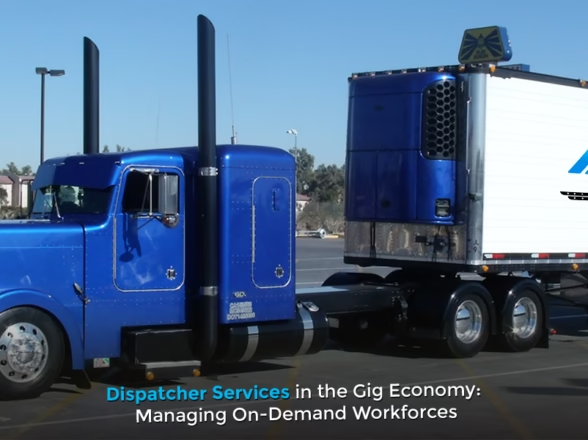From Chaos to Coordination: How Truck Dispatch Streamlines Freight Management

Freight management can be complicated. Improper systems, delays, miscommunication, and high costs can cause problems for businesses and customers. Furthermore, late deliveries and wasted resources make things worse. Truck dispatching helps solve these issues.
It organizes shipments, assigns the best routes, and connects drivers and dispatchers. Tools like GPS tracking and automated scheduling ensure goods reach their destination on time and make the process smooth and efficient, helping businesses save time and money to keep their customers happy.
Understanding Truck Dispatching
Truck dispatching is the process of coordinating freight shipments by assigning trucks, planning routes, and ensuring timely deliveries. Dispatchers play a crucial role in keeping operations smooth by communicating with drivers, tracking shipments, and solving problems like delays or route changes.
They use tools like GPS tracking and dispatch software to improve efficiency, reduce delays, and enhance communication. A well-organized dispatch system helps businesses save time and money while ensuring that goods reach their destination safely and on schedule.
Common Challenges In Freight Management
Freight management has many challenges that can cause delays and extra costs. Poor route planning can make deliveries slower and increase fuel use. Miscommunication between drivers and dispatchers can also lead to confusion and mistakes. Other factors like traffic, bad weather, and truck breakdowns can also delay shipments.
If loads are not managed well, space is wasted, and transportation becomes more expensive. Without proper tracking and coordination, businesses may struggle to deliver on time, which leads to unhappy customers and lost profits.
How Truck Dispatching Improves Freight Management?
Truck dispatching improves freight management by making the process more organized, efficient, and cost-effective. It helps assign the right shipments to the right trucks, ensuring that deliveries follow the best routes to save time and fuel.
Real-time tracking allows businesses to monitor shipments, quickly respond to delays, and keep customers updated. Truck dispatching helps in better load management, ensuring that trucks carry the right amount of goods, and reduce wasted space and extra trips. Clear communication between dispatchers and drivers prevents confusion and helps avoid delays and mistakes. A well-planned dispatch system allows businesses to deliver goods faster, lower costs, and improve customer satisfaction.

Technology’s Role In Truck Dispatching
Technology plays a big part in making truck dispatching more efficient and organized. Tools like GPS tracking allow dispatchers to see where trucks are in real time, making it easier to adjust routes if there are delays.
Automated dispatch software helps schedule deliveries and assign the best routes quickly, saving time and reducing human errors. Telematics systems give valuable information about the truck’s condition, fuel use, and driver performance, improving safety and reducing costs. With these technologies, truck dispatching has become smarter, more reliable, and easier to manage.
Benefits Of A Well-Managed Dispatch System
A well-managed dispatch system brings many benefits. It ensures faster deliveries by finding the best routes and reducing delays. This leads to better customer satisfaction, as goods arrive on time. It also saves money by cutting fuel costs and improving vehicle use.
Dispatchers can make better decisions with real-time tracking, reducing mistakes and improving safety. Additionally, it makes life easier for drivers by reducing stress and making their routes clearer. Overall, a well-managed system boosts efficiency, reduces costs, and helps businesses grow.
Conclusion:
In conclusion, truck dispatching is key to turning chaos into coordination in freight management. By organizing routes, improving communication, and using modern technology, truck dispatching companies help ensure that deliveries are made on time, resources are used efficiently, and customers are satisfied.
A well-managed dispatch system reduces delays, cuts costs, and boosts overall effectiveness. As businesses continue to grow and face new challenges, investing in efficient truck dispatching will remain a smart way to keep operations smooth and reliable.
Related posts
Recent Posts
Subscribe
Calendar
| M | T | W | T | F | S | S |
|---|---|---|---|---|---|---|
| 1 | ||||||
| 2 | 3 | 4 | 5 | 6 | 7 | 8 |
| 9 | 10 | 11 | 12 | 13 | 14 | 15 |
| 16 | 17 | 18 | 19 | 20 | 21 | 22 |
| 23 | 24 | 25 | 26 | 27 | 28 | 29 |
| 30 | 31 | |||||











